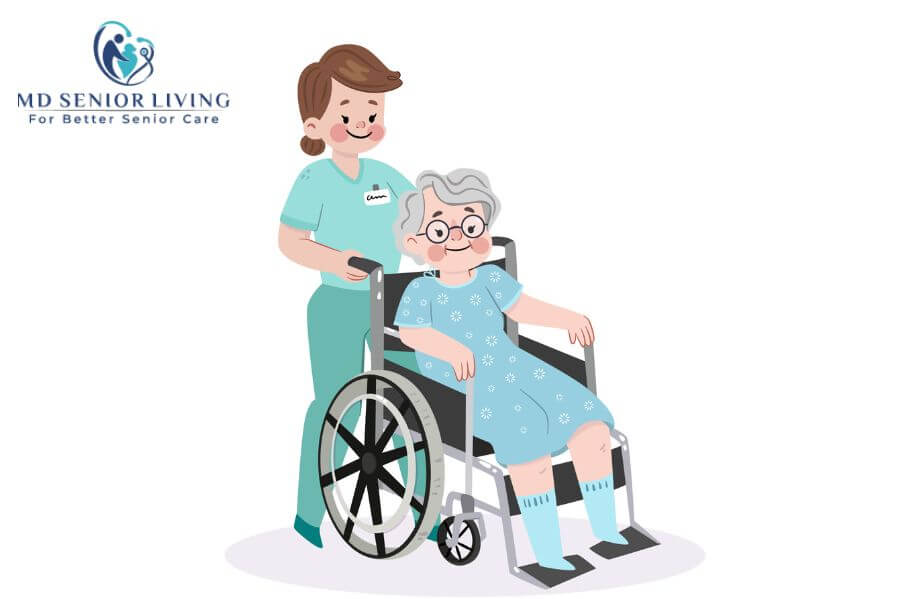Transitioning a Parent with Dementia into Assisted Living: An In-Depth Guide

At MD Senior Living, we understand the challenges and emotions that accompany the decision to move a parent with dementia to an assisted living facility. It is a significant life transition that requires careful planning, compassion, and a deep understanding of the unique needs of individuals living with dementia. In this comprehensive guide, we will provide you with invaluable insights and practical advice to make this transition as smooth as possible for both you and your loved one.
1. Understanding Dementia and Its Impact
Dementia is a complex neurological condition that affects cognitive abilities, memory, and behavior. It is crucial to have a thorough understanding of dementia and its various stages before embarking on the journey of relocating a parent to assisted living. Here are key points to consider:
- Types of Dementia: Familiarize yourself with the different types of dementia, such as Alzheimer’s disease, vascular dementia, Lewy body dementia, and frontotemporal dementia. Each type has unique characteristics and may require tailored care approaches.
- Stages of Dementia: Dementia progresses through different stages, ranging from mild to severe. Assessing your parent’s stage of dementia will help determine the level of assistance and care they require.
- Care Needs: Take into account the specific care needs arising from your parent’s dementia, such as assistance with daily activities, medication management, and specialized memory care programs.
2. Planning and Preparation
Moving a parent with dementia requires meticulous planning and preparation to ensure their safety, comfort, and emotional well-being. Consider the following essential steps:
- Choosing the Right Assisted Living Facility: Research and visit various assisted living facilities to find one that specializes in dementia care. Look for facilities with qualified staff, dementia-specific programs, and a warm and supportive environment.
- Communication and Involvement: Involve your parent in the decision-making process as much as possible, considering their cognitive abilities. Engage in open and honest discussions to address their concerns and help them feel empowered.
- Creating a Familiar Environment: Once you have selected a facility, try to recreate a familiar environment in their new living space. Bring cherished belongings, photographs, and other personal items that can provide a sense of familiarity and comfort.
- Developing a Transition Plan: Collaborate with the assisted living facility’s staff to create a personalized transition plan for your parent. This plan should outline their medical needs, daily routines, preferences, and any specific challenges related to their dementia.
3. Supporting Emotional Well-being
Moving to assisted living can be emotionally challenging for both the individual with dementia and their family members. Here are strategies to provide emotional support during this transition:
- Open Communication Channels: Maintain regular communication with the assisted living facility’s staff to stay updated on your parent’s well-being. Address any concerns promptly and discuss the best ways to support their emotional needs.
- Visiting and Familiar Faces: Frequent visits from family members and friends can provide a sense of comfort and reassurance. Encourage loved ones to visit regularly and participate in activities that promote social engagement.
- Engaging Activities: Assisted living facilities often offer a range of activities designed to stimulate cognitive function and promote social interaction. Encourage your parent to participate in these activities, tailored to their abilities and interests.
4. Ensuring a Smooth Transition
To ensure a smooth transition, it is important to pay attention to practical considerations and logistics. Here are some key points to remember:
- Medication Management: Work closely with the assisted living facility’s staff to transfer and organize your parent’s medications. Provide comprehensive information about their medication schedule, dosage, and any potential side effects to ensure proper care and administration.
- Collaboration with Healthcare Providers: Maintain open communication with your parent’s healthcare providers, including their primary care physician and specialists. Share relevant medical records and information to ensure continuity of care.
- Legal and Financial Considerations: Review and update legal documents, such as power of attorney and healthcare directives, to reflect the new living arrangements. Consult with an attorney specializing in elder law to address any financial considerations or long-term care planning.
- Safety Measures: Assess the assisted living facility for safety features, such as secure entrances, well-maintained common areas, and emergency response systems. Discuss any specific safety concerns related to your parent’s dementia and work with the facility to address them.
5. Ongoing Support and Adaptation
Moving a parent with dementia to assisted living is not a one-time event but an ongoing journey. Here are strategies to ensure continuous support and adaptation:
- Regular Assessments: Schedule regular assessments with the assisted living facility’s staff to evaluate your parent’s needs and adjust their care plan accordingly. This includes monitoring changes in their cognitive abilities, physical health, and emotional well-being.
- Staff Collaboration: Maintain open lines of communication with the facility’s staff, including caregivers, nurses, and administrators. Share updates, concerns, and any changes in your parent’s condition to ensure they receive the best possible care.
- Family Involvement: Stay actively involved in your parent’s life at the assisted living facility. Attend family meetings, participate in care conferences, and collaborate with the staff to ensure their individualized needs are met.
- Education and Support Groups: Seek out educational resources and support groups specifically tailored to families and caregivers of individuals with dementia. These resources can provide valuable information, guidance, and emotional support throughout the journey.
Conclusion
Moving a parent with dementia to assisted living is a significant decision that requires careful planning, preparation, and ongoing support. By understanding the unique needs of individuals with dementia, selecting the right facility, providing emotional support, and addressing practical considerations, you can help ensure a successful transition. Remember, each individual’s journey is unique, and adapting to their changing needs with compassion and flexibility is key. With proper care and attention, you can provide your parent with a safe and nurturing environment that enhances their quality of life and well-being.
For personalized assistance and expert guidance in moving your parent with dementia to assisted living, contact MD Senior Living today. Our dedicated team is here to support you every step of the way. Call us now at (480) 605-4002 to learn more about our specialized dementia care programs and how we can help you and your loved one navigate this important transition. Your parent’s well-being is our priority.






Leave a Comment